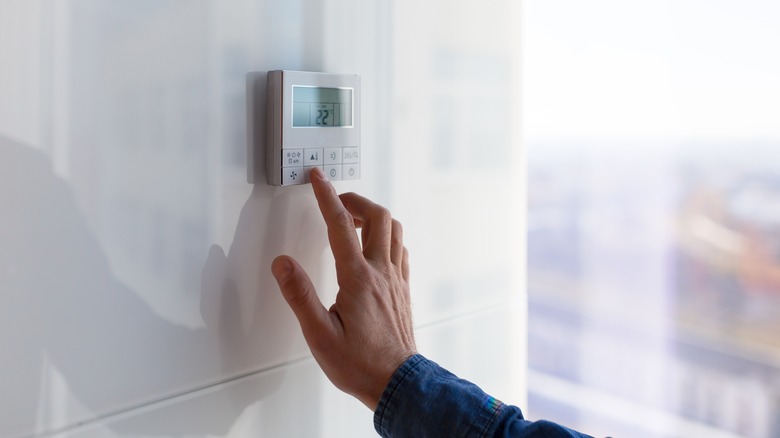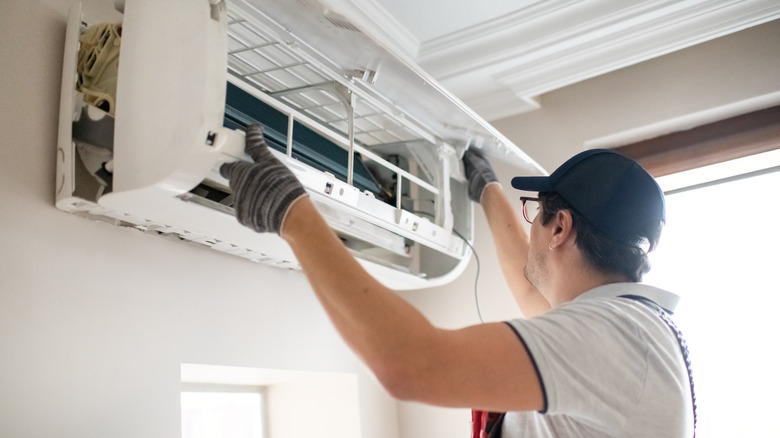Do Landlords Have To Provide Tenants With AC? It Depends On Where You Live
As home prices rise and homeownership becomes less possible for millions of Americans, more people are renting than ever before. Whether you're thinking of becoming a landlord yourself, or you're trying to make sure your apartment or condo is as comfortable as possible, renters' rights become an especially hot topic during the summer months. The vast majority of states and cities in the United States require landlords to ensure their properties are appropriately safe and habitable, requiring rentals to be structurally stable, weatherproof, and sanitary. But when it comes to providing tenants with air conditioning, there are far fewer rules and regulations. Although many bills have been introduced to codify cooling requirements for renters, few states or cities require landlords to provide tenants with AC.
Whether you're a renter or a landlord, it's important to check the most recent state and local ordinances to determine exactly what's required in your specific location. In Tempe, Arizona, which is located in the center of the hottest metropolitan area in the country, every rental housing unit must have a permanently installed cooling system that a tenant can control. New Orleans, Louisiana, has a similar requirement. The same goes for Dallas and Houston, Texas, although systems are only required in the latter if door and window screens aren't provided. In Montgomery County, Maryland, landlords are required to provide air conditioning in townhomes, apartments, and condominiums, but renters living in single-family or registered historic homes are on their own. If there's no air conditioning requirement in your area, it may be time to consider if it's worth buying a portable AC unit, especially if you anticipate a heat wave.
Landlords are required to fix AC units
Even when there's no legal requirement, some properties will have an air conditioning unit installed to make a home more appealing to renters or more financially advantageous to landlords. Although the requirement to provide AC is far from universal, it's much more common for states and cities to require landlords to maintain an already-installed system, especially if it's listed as an amenity on a rental agreement. Unless an agreement specifically exempts it, a broken air conditioner is typically one of the things you can legally ask your landlord to improve or replace. State and local governments usually define the amount of time a landlord has to make the repairs, as well as any steps renters can take in the event of a dispute. No matter which side of the rental agreement you're on, make sure maintenance and repair responsibilities are clearly outlined in writing!
There does appear to be some relief on the horizon, thanks to proposed cooling mandate bills in states including Oregon, New York, and New Jersey. But along with the fate of this legislation being uncertain, even renters who have air conditioning units in their homes face rising energy costs that can make it too expensive to cool things off. Both New York and Oregon have instituted programs to help offset the cost of fans or air conditioners for struggling renters. If you're a landlord who wants to provide air conditioning to your tenants but worries about the investment, look into federal tax credits or rebates for energy-efficient updates. Your local utility company can help point you in the right direction.

